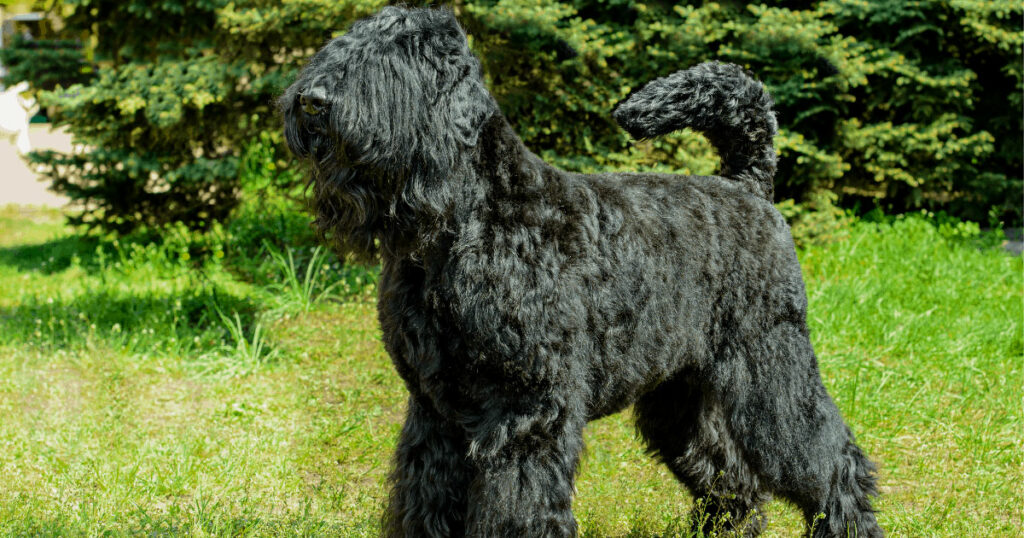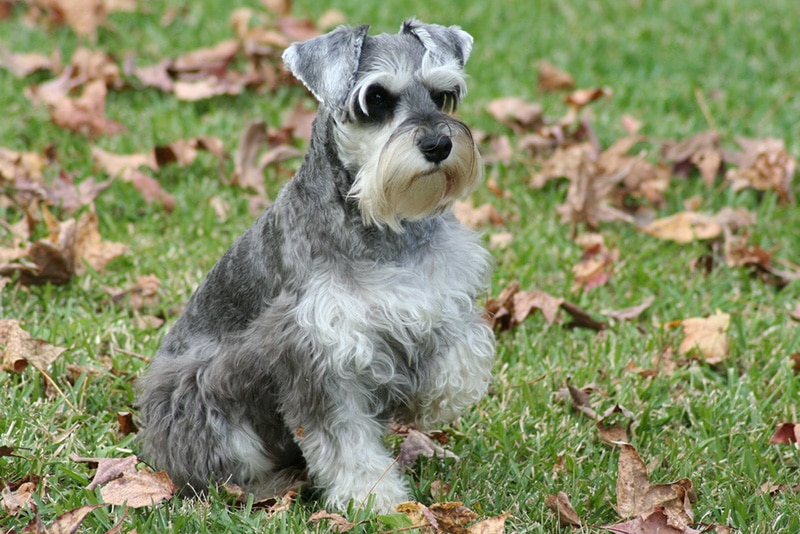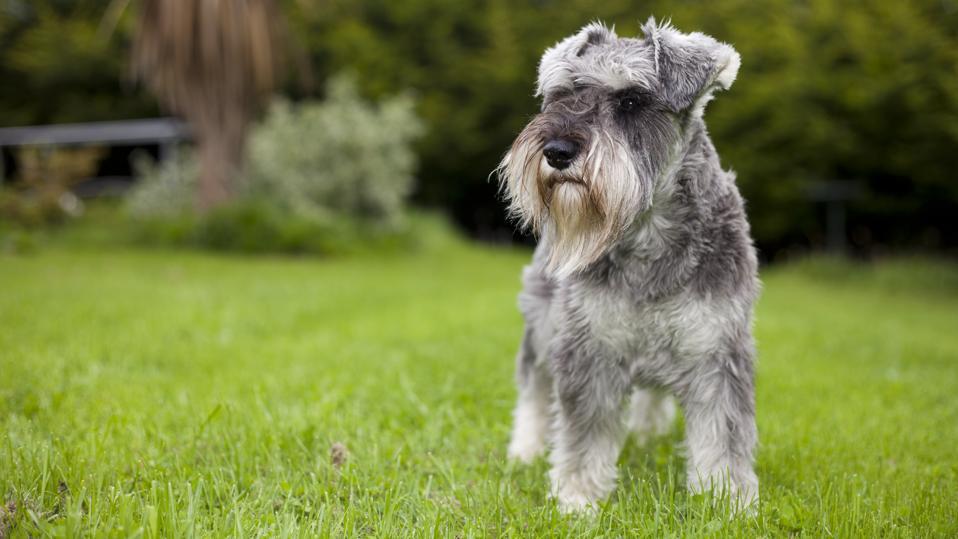schnauzers are a beloved breed, known for their unique appearance and charming personalities. They come in three sizes – Miniature, Standard, and Giant – each with their own distinctive traits. While Schnauzers share similar temperaments and behaviors, their sizes and weights vary significantly. In this comprehensive guide, we will unravel the mystery of Schnauzer weights, exploring factors that influence weight, ideal weight ranges, and the potential consequences of being overweight or underweight. So, if you’re a proud Schnauzer owner or considering adding one to your family, read on to discover everything you need to know about Schnauzer weights.
Understanding Schnauzer Weight Variations

As mentioned, Schnauzers come in three sizes, with each size having its own ideal weight range. Let’s take a closer look at these variations:
1. Miniature Schnauzers
Ideal Weight: 11-20 pounds Height: 11-14 inches at the shoulder
Miniature Schnauzers are the smallest of the breed, but don’t let their size fool you. They may be small, but they have big personalities and endless energy. Miniature Schnauzers are known for their playful nature, unwavering loyalty, and athleticism. These qualities make them great companions for families, singles, and seniors alike. Their compact size also makes them suitable for apartment living, as long as they get enough exercise.
On average, Miniature Schnauzers weigh between 11-20 pounds, with males typically being slightly heavier than females. However, it is essential to note that weight can vary within this range depending on factors such as age, genetics, and activity level. For instance, a younger, more active Miniature Schnauzer may weigh closer to 20 pounds, while an older, less active dog may fall towards the lower end of the weight range.
As is the case with all Schnauzers, Miniatures have a dense, double coat that requires regular grooming to maintain. This can also impact their weight, as a lack of proper grooming can lead to matting and added weight from tangled fur. Overall, a healthy weight for a Miniature Schnauzer is crucial for their overall well-being and quality of life.
2. Standard Schnauzers
Ideal Weight: 35-45 pounds (males), 30-40 pounds (females) Height: 17-20 inches at the shoulder
Standard Schnauzers are often described as the middle child of the Schnauzer family. They are larger than Miniatures but smaller than Giants, making them a popular choice for families looking for a medium-sized dog. Standard Schnauzers are known for their intelligence, trainability, and protective instincts, making them excellent companions and watchdogs.
On average, male Standard Schnauzers weigh between 35-45 pounds, while females weigh between 30-40 pounds. Like their Miniature counterparts, weight can vary within this range based on factors such as age, genetics, and activity level. However, it’s essential to monitor your Standard Schnauzer’s weight closely, as they are prone to obesity if not kept on a balanced diet and given enough exercise.
Given their larger size, Standard Schnauzers require more space and exercise compared to Miniatures. A daily walk and playtime in the yard will help keep them at a healthy weight and prevent any potential behavior issues that may arise from pent-up energy. Regular grooming is also essential for Standard Schnauzers, as their wiry coat can become matted if not properly maintained.
3. Giant Schnauzers
Ideal Weight: 55-75 pounds Height: 23-28 inches at the shoulder
The largest of the Schnauzer family, Giant Schnauzers, are often referred to as “gentle giants.” They have a commanding presence and make excellent guard dogs due to their size and protective instincts. Giants are also known for their intelligence, loyalty, and strength. While they may seem intimidating, they make loving and devoted companions.
Giant Schnauzers have an ideal weight range of 55-75 pounds, with males typically being on the heavier end of the spectrum. As with all breeds, there can be some variation within this range based on age, genetics, and activity level. However, it’s crucial to monitor your Giant Schnauzer’s weight closely, as they are prone to obesity and its associated health issues if not kept on a balanced diet and given enough exercise.
Given their size and energy levels, Giants require ample space and exercise to maintain a healthy weight. A daily walk and playtime in a fenced yard are essential for their physical and mental well-being. Regular grooming is also necessary for Giants, as their wiry coat can become matted without proper maintenance.
Factors Influencing Schnauzer Weight

There are several factors that can influence a Schnauzer’s weight, including age, genetics, activity level, and diet. Let’s take a closer look at each of these factors:
1. Age
Just like humans, dogs’ metabolism and activity levels can change as they age. As Schnauzers enter their senior years, they may begin to slow down and require less food and exercise. On the other hand, younger Schnauzers have more energy and may require a higher calorie intake to maintain a healthy weight. It’s essential to monitor your Schnauzer’s weight throughout their life stages and adjust their diet and exercise accordingly.
2. Genetics
Genetics play a significant role in determining a Schnauzer’s size and weight. Breeders aim to produce puppies within the standard size and weight range for their specific breed, but there can be variations within a litter. If you are curious about your Schnauzer’s potential weight, research their breed and consult with your breeder.
3. Activity Level
Just like humans, dogs need regular exercise to maintain a healthy weight and overall well-being. Schnauzers are an active breed and require daily exercise to keep them physically and mentally stimulated. Without enough exercise, they may become bored, which can lead to destructive behaviors and weight gain. It’s important to find a balance between rest and activity for your Schnauzer to maintain a healthy weight.
4. Diet
Diet is perhaps the most crucial factor when it comes to maintaining a healthy weight for your Schnauzer. A balanced diet that meets their nutritional needs and calorie requirements is essential for overall health and weight management. Consult with your veterinarian to determine the best diet for your Schnauzer based on their age, size, and activity level.
Ideal Weight Ranges for Different Schnauzer Breeds

As mentioned earlier, each Schnauzer breed has its own ideal weight range. However, it’s essential to note that these ranges are just a guideline and may vary slightly for individual dogs. Here’s a breakdown of the ideal weight ranges for Miniature, Standard, and Giant Schnauzers:
| Breed | Ideal Weight Range (lbs) |
|---|---|
| Miniature | 11-20 |
| Standard | 30-45 (males), 30-40 (females) |
| Giant | 55-75 |
It’s important to remember that these weight ranges are based on average weights for each breed. Some Schnauzers may weigh more or less than the standard range, depending on factors such as age, genetics, and activity level. If you’re unsure about your Schnauzer’s weight, consult with your veterinarian to determine if they are at a healthy weight.
Maintaining a Healthy Weight for Your Schnauzer

Maintaining a healthy weight for your Schnauzer is essential for their overall health and well-being. Here are some tips for keeping your Schnauzer at a healthy weight:
1. Monitor Their Food Intake
It’s crucial to monitor your Schnauzer’s food intake and ensure that it aligns with their ideal calorie requirements. Pay attention to the recommended portion sizes on your dog food packaging and adjust as necessary. If you notice your Schnauzer gaining or losing weight, consult with your veterinarian to determine the best course of action.
2. Regular Exercise
Schnauzers are an active breed and require daily exercise to keep them mentally and physically stimulated. A brisk walk, playtime in the yard, or obedience training can help burn off excess energy and keep your Schnauzer at a healthy weight. As mentioned earlier, exercise needs may vary based on age, genetics, and activity level, so consult with your veterinarian for personalized recommendations.
3. Grooming
Proper grooming is essential for all Schnauzers, and it can also impact their weight. A lack of proper grooming can lead to matting, which adds unnecessary weight to your dog. Regular grooming not only keeps your Schnauzer’s coat in top shape, but it also allows you to monitor any changes in their weight.
4. Consult with Your Veterinarian
Your veterinarian is your best resource when it comes to maintaining your Schnauzer’s overall health and weight. They can provide personalized recommendations based on your dog’s age, size, and activity level. If you’re ever unsure about your Schnauzer’s weight, schedule a visit with your veterinarian to get their expert opinion.
Potential Health Concerns Related to Schnauzer Weight

Maintaining a healthy weight for your Schnauzer is crucial, as being overweight or underweight can lead to various health issues. Let’s take a look at some of the potential health concerns related to Schnauzer weight:
1. Obesity
Schnauzers are prone to obesity, mainly due to their love for food and lack of portion control. Obesity can lead to numerous health issues, such as joint problems, diabetes, heart disease, and respiratory issues. As responsible owners, it’s essential to keep our Schnauzers at a healthy weight to prevent these potential health concerns.
2. Joint Problems
Excess weight puts unnecessary strain on a dog’s bones and joints, leading to various joint problems. These issues can be particularly problematic for Schnauzers, who are already predisposed to certain joint conditions such as hip dysplasia and luxating patellas. Keeping your Schnauzer at a healthy weight can help prevent or minimize these issues.
3. Diabetes
Obesity can also increase the risk of developing diabetes in dogs. This chronic disease can significantly impact a dog’s quality of life and requires ongoing management. By keeping your Schnauzer at a healthy weight, you can reduce their risk of developing diabetes and other associated health issues.
4. Breathing Difficulties
Being overweight can also affect a dog’s respiratory system, making it more difficult for them to breathe. This can be especially problematic for Schnauzers, who already have a predisposition to respiratory issues due to their short snouts. Maintaining a healthy weight can help prevent these breathing difficulties and improve your Schnauzer’s overall quality of life.
Conclusion
In conclusion, Schnauzer weights can vary significantly based on factors such as age, genetics, activity level, and diet. Each breed has its own ideal weight range, and it’s essential to monitor your Schnauzer’s weight to ensure they are at a healthy weight. Consult with your veterinarian if you’re ever unsure about your Schnauzer’s weight or have any concerns. By understanding the factors that influence weight and taking necessary steps to maintain a healthy weight, we can help our Schnauzers live long, happy, and healthy lives.
